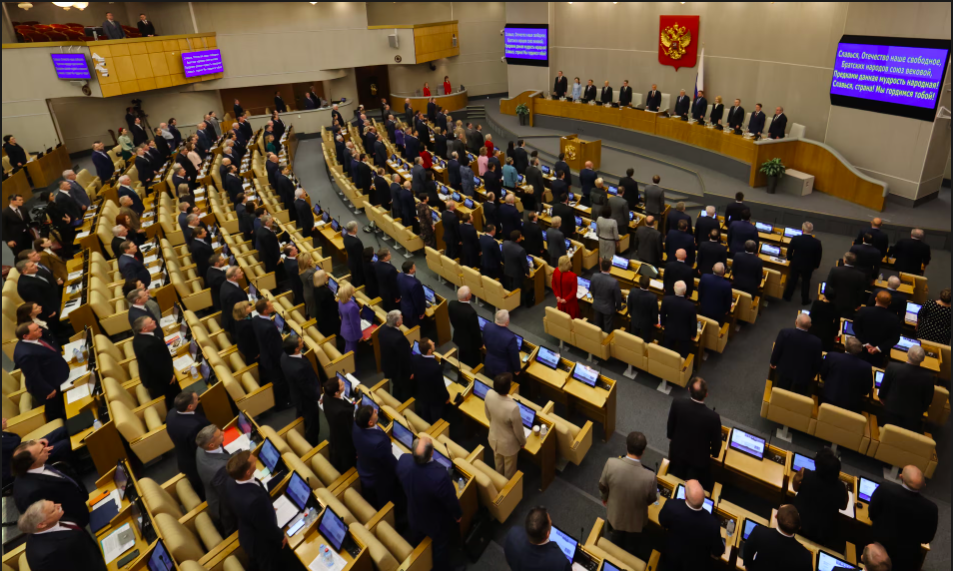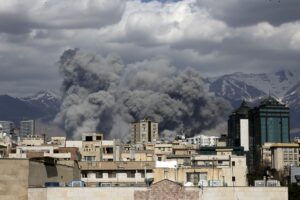
Published 07/11/2024 16:41
Russia announced plans today to raise taxes on high-income individuals and companies. The government’s tax commission today approved a plan by the Finance Ministry to create a new progressive personal income tax system and raise the corporate tax.
More than 100 countries have a progressive personal income tax scale of at least three levels. Russia is one of the latest countries to adopt the practice. The bill, which passed its third final reading in the State Duma, needs to be approved by the upper house and signed by President Vladimir Putin to become law.
The proposed amendments, which will take effect from 2025, are intended to generate 2.6 trillion rubles (about $29 billion) for the Kremlin. The package of measures constitutes the country’s largest fiscal reform in years and signals that President Vladimir Putin is betting on a long-term conflict with Ukraine and will continue to align society and the economy with military strategies.
“Given the rampant spending on the military-industrial complex, the government cannot rely on criticism alone,” said Erik Meyersson, chief emerging markets strategist at Swedish bank SEB.
Russian President Vladimir Putin suggested the country would raise taxes on corporations and wealthy individuals shortly before securing a fifth term in March, in a further step toward moving away from the flat income tax rate that was the basis of his economic policy during his first two decades in power.
A flat 13% tax was introduced shortly after Putin’s first election in 2000 in a bid to combat widespread tax evasion and boost state revenue. In 2021, Russia changed the system so that people earning more than 5 million rubles a year would pay 15% on the amount above the threshold. Under the proposed changes, the new tax rates would range from 13% for those earning up to $27,000 a year to 22% for those earning more than $560,000.
Russia’s military spending has already topped 6 percent of gross domestic product, approaching levels spent by the Soviet Union at the height of the Cold War in the 1980s. In May, Putin appointed Andrei Belousov, a macroeconomist, as defense minister, underscoring the centrality of war to the Russian economy.
However, the financing of this war has alarmed the government’s finances. The federal budget deficit has widened to $16.6 billion in the first four months of 2024, almost the amount projected for the entire year.
Compensation measures
Moscow has been plugging funding gaps with its emergency fund, fueled mainly by revenues from oil sales, and by issuing more debt. The fund’s assets have fallen to $139 billion from about $180 billion before the war.
Economists say Russia can continue to finance the war for now because of high oil prices and ways to circumvent Western sanctions. However, the tax reform is seen as an acknowledgement that the war effort may become unsustainable.
Population protection
The Kremlin has sought to shield local people from the effects of the war through subsidies and social programs since its invasion of Ukraine in February 2022. Soldiers fighting in Ukraine and poorer families with children are exempt from the tax hikes. The changes will affect about 2 million workers out of Russia’s 64 million.
For companies, the government plans to raise the tax rate from 20% to 25%. The amendments also include an increase in taxes on producers of fertilizers and iron ore. After the outbreak of war, Russia introduced a tax on extraordinary corporate profits.
“This is definitely a war-related tax increase,” said Alexandra Prokopenko, a fellow at the Carnegie Russia Eurasia Center and a former official at Russia’s central bank. “Business will be the ones paying for this war party.”
The war has exacerbated economic imbalances and weakened Russia’s long-term growth potential. Inflation remains high, reaching nearly 8 percent in April, double the central bank’s target. The state is running budget deficits and facing chronic labor shortages, with companies competing for workers with military manufacturers. Western sanctions have also restricted Russia’s access to imported goods and cut off lucrative energy sales to Europe.
Source: vermelho.org.br

